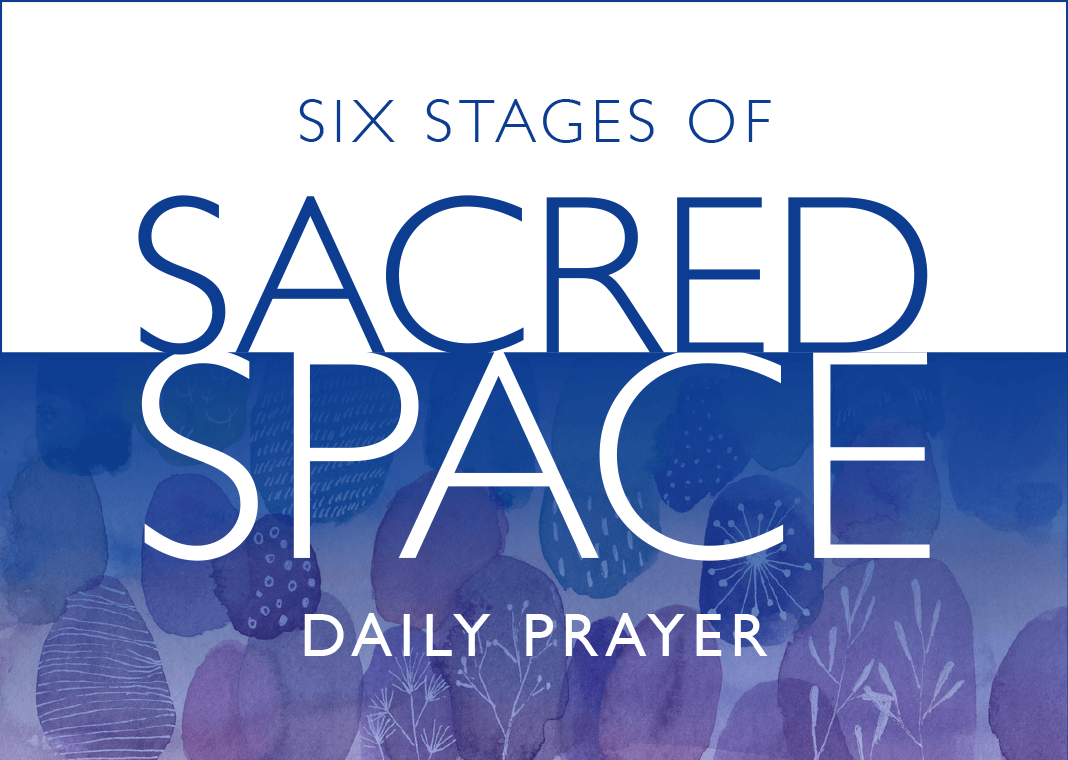 Editor’s note: Sacred Space: The Prayer Book 2026 suggests six steps of prayer and contemplation for exploring the daily Scripture passages: The Presence of God, Freedom, Consciousness, The Word, Conversation, and Conclusion. We’ve invited our Ignatian bloggers to explore each step in our continuing series.
Editor’s note: Sacred Space: The Prayer Book 2026 suggests six steps of prayer and contemplation for exploring the daily Scripture passages: The Presence of God, Freedom, Consciousness, The Word, Conversation, and Conclusion. We’ve invited our Ignatian bloggers to explore each step in our continuing series.
Conversation
“How has God’s word moved me? Has it left me cold? Has it consoled me or moved me to act in a new way? I imagine Jesus standing or sitting beside me. I turn and share my feelings with him.” (The Irish Jesuits, Sacred Space: The Prayer Book 2026)
St. Ignatius of Loyola included a series of annotations at the beginning of his Spiritual Exercises. Think of these as helpful notes for the director and exercitant to keep in mind as they progress through the four weeks of the retreat.
The 15th annotation is one of my favorites. In short, it instructs the retreat director to get out of the way of the Creator, who desires to deal directly with the beloved creature. I come back to this annotation time and again, because it speaks to an essential truth of our relationship with God. Certainly, Ignatius is cautioning against an overzealous spiritual director trying to micromanage God’s relationship with God’s beloved. But that insight rests on an even more foundational truth: God continues to speak to us—and to speak to us directly. We need to listen. And we need to trust that even in moments of dryness and silence, God continues to whisper in the depths of our hearts.
The wisdom of the 15th annotation can help bolster this next step in our Sacred Space prayer experience, that of conversation. We are reminded that God is active and speaking and that our prayer is not cold ink adorned to a discarded letter, but the very life of God’s Spirit working within us.
How has God’s Word moved me?
If we believe that God desires to deal directly with us, then we can look to God’s Word as revelatory of that desire. Specifically, we ask ourselves what has stirred within us as we read God’s Word. Has a phrase caught our attention? Has a particular image called to mind a forgotten memory? Has an exchange of dialogue invited deeper questions? All of these stirrings—this inner movement—can be seen as God’s very self at work within us. Consequently, we are asked to sit with this movement and allow God’s Spirit to speak. Those moments of resonance we feel in Scripture are not simply personal preferences for word choices; these are encounters with God and God’s desire to deal with us in our uniqueness.
Has it left me cold?
If reflecting upon resonance in prayer is important, then so too is examining those moments of inner resistance. Noting those places of Scripture that leave us wanting, dry, or irritable is just as important as naming those places of consolation. God’s Spirit may be using such dryness to draw our attention to a story or a scene that makes us uncomfortable. We need to ask, Is there something here we need to learn about ourselves? Is God using Scripture to note injustice, alert us to misaligned values, or point out how our understanding of the human person has grown? Or perhaps coldness in our encounter with God’s Word is simply the Spirit inviting us to look elsewhere for God at work in our lives.
Has it consoled me or moved me to act in a new way?
Because God is alive within us, we can and should expect God to invite us to something specific and sacred in our daily lives. We may detect in Scripture a holy wink from God, some reference or turn of phrase that resonates with a particular task, project, or relationship from our current reality. This isn’t a magic trick, nor is it necessarily affirmation that everything will work out as we desire. Moments of consolation or inspiration are reminders that God is with us, alive and at work and intimately near. Therefore, we can and should set about God’s work with confidence, knowing that our collaboration assures things will work out as God desires.
I imagine Jesus standing or sitting beside me. I turn and share my feelings with him.
Finally, we turn to Jesus, our friend and companion. We see Jesus clearly; we know he was a human person like us. With him, we can speak plainly, as with a friend. Recall that the Spiritual Exercises are an ongoing encounter with Christ in his ministry. The wisdom of the 15th annotation, then, is leading us deeper into our own walk with Jesus. In our prayer, we share our thoughts with Jesus; importantly, we let him speak to us too.
We might even conclude this section of our prayer by asking Jesus how God’s Word affects him. After all, isn’t that what a true friend does? Aren’t we called to share in such experiences with our friends?
Ready to try the Sacred Space way of praying this Advent and beyond? Sacred Space: The Prayer Book 2026 is now available for only $12.

“Those moments of resonance we feel in Scripture are not simply personal preferences for word choices; these are encounters with God and God’s desire to deal with us in our uniqueness” – Very true and uplifting. Thanks Eric.